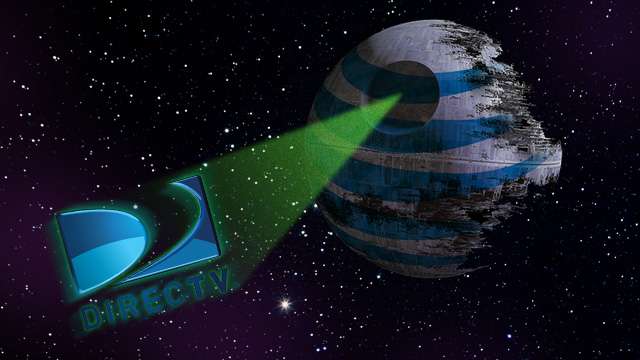
DirecTV kept charging regional sports fee while channel was blacked out

DirecTV and Comcast are being investigated by Colorado Attorney General Phil Weiser, who objects to the TV providers continuing to charge regional sports network (RSN) fees despite not providing one of the major regional sports networks. While Comcast is giving customers partial bill credits, DirecTV apparently hasn’t done so.
Weiser sent letters to the AT&T-owned DirecTV and Comcast on October 23, asking why the companies kept charging RSN fees after they stopped providing the Altitude Sports network. The network broadcasts games played by the state’s major professional basketball, hockey, and soccer teams (the Denver Nuggets, Colorado Avalanche, and Colorado Rapids, respectively). The AG’s letters said that Comcast’s and DirecTV’s conduct “may constitute a deceptive trade practice under the Colorado Consumer Protection Act” and “may result in the imposition of civil penalties up to $20,000 per violation.” The letters also said the AG is investigating other potentially misleading fees.
Altitude was blacked out on both DirecTV and Comcast two months ago because the TV providers didn’t want to pay Altitude as much as it asked for. Altitude finally reached a deal with DirecTV a few days ago but is still negotiating with Comcast. Altitude is also blacked out on Dish satellite TV, but Dish doesn’t charge a regional sports network fee.
Comcast giving partial bill credits
Comcast responded to the AG’s office with a letter on October 31, saying that it had already begun giving partial credits to customers. Comcast’s RSN fee in Colorado is $8 a month, while DirecTV charges $8.50, according to the AG’s letters.
Comcast wrote in its letter to the AG:
Comcast has been proactive and has shared both publicly and in direct communications with its customers that we are providing a partial credit of the RSN fee, due to Comcast not currently carrying Altitude as part of our cable packages in Colorado. Comcast continues to provide other regional sports programming which accounts for the remaining RSN fee charged to customers.
The other regional sports programming offered by Comcast includes the AT&T SportsNet Rocky Mountain channel, which broadcasts Colorado Rockies baseball games, and the Pac-12 network that broadcasts college sports.
We asked Comcast how big of a credit it is giving to customers, but the company declined to provide a specific number. Comcast told us that “the amount of the partial credit varies based on what RSNs are available in the customers’ area.”
AT&T actions “very concerning”
Weiser’s office gave both companies until November 7 to respond. Comcast said it will provide an additional, more detailed response to the AG by then. AT&T’s DirecTV division hasn’t responded to Weiser’s office yet, Weiser’s office told Ars today. We contacted AT&T today and will update this article if we get a response.
The actions of DirecTV, which apparently hasn’t offered credits to customers, have been “very concerning,” Weiser told The Denver Post.
“Based on early conversations with DirecTV and AT&T, we didn’t believe they were taking the request with the seriousness that they should,” a spokesperson for Weiser also told the Post.
AT&T would have less of an excuse than Comcast to keep charging an RSN fee while Altitude was blacked out, because AT&T itself owns the other major RSN for professional sports in Colorado. TV providers claim they need to charge customers RSN fees to cover the high carriage prices charged by regional sports networks. But when the TV provider owns the network, as AT&T does with AT&T SportsNet Rocky Mountain, those carriage payments are simply going from one part of the company to another.
Comcast also owns regional sports networks, but none in Colorado.
While Weiser’s inquiry to Comcast and DirecTV focused mainly on charging the RSN fee during the Altitude blackout, the AG is also conducting a broader investigation into fees charged by TV and broadband providers. The letters to Comcast and DirecTV said:
In addition to investigating the assessment of a Regional Sports Fee, the OAG [Office of the Attorney General] has opened an investigation of other fees and charges that providers impose on subscribers of television and Internet services that have the potential to confuse and mislead consumers. The imposition of such fees and charges may violate [state law on deceptive trade practices].
Years of controversy
The RSN fees have long been controversial. Comcast, DirecTV, and other providers don’t include RSN fees in their advertised prices, so they contribute to the bill shock customers experience when they find out they’re going to pay more than the companies claimed they would. TV providers also routinely raise RSN fees even while customers are under contract.
Comcast’s regional sports fee was only $1 in 2015 but has increased eight-fold since then. Comcast told Ars that it “itemizes the RSN fee to be transparent with our customers about the factors driving pricing.” TV providers have used the same approach with “broadcast TV” fees, which they say cover the cost of retransmission consent fees paid to broadcast networks.
Colorado is not the first state to investigate RSN fees. Minnesota Attorney General Lori Swanson sued Comcast in December 2018, alleging among other things that Comcast reps falsely told customers that the company’s RSN and broadcast TV fees were mandated by the government and not controlled by Comcast itself. Comcast was also sued by customers over the sports and broadcast TV fees in 2016, but the case was settled in 2018.
Separately, Cord Cutters News reported last week that Comcast has been removing other channels from TV packages but not lowering its prices.




